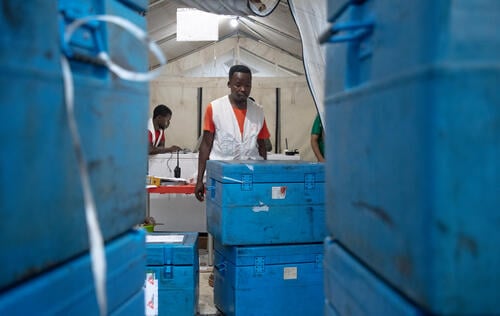Supply Chain Managers are essential in ensuring the efficient flow of supplies to support our humanitarian projects.
By overseeing order processing, warehouse inventory, and local purchases, Supply Chain Managers are at the heart of our logistics, securing vital resources for people in need. They work closely with Project Coordinators to manage budgets, optimise supply chains, and provide critical data on stock levels, lead times, and potential shortages.
This is a dynamic and impactful role that supports our projects through the effective management of supplies, involving everything from team management to implementing standard supply tools and processes.
Responsibilities:
- Define, coordinate, and monitor supply chain activities to ensure the optimal running of the project.
- Collaborate with the Project Coordinator, Supply Chain Coordinator, or Logistics Coordinator to plan, establish, and review supply activities, including budgeting.
- Ensure the efficient management of supply activities, including order processing, local purchases, stock management (both physical and administrative), freight management, and the implementation of standard supply tools (LogistiX 7, Q4, etc.).
- Provide relevant management data to stock owners, project, and capital coordination, including information on expired drugs, risk of shortages, stock reports, lead time, and pipeline.
- Manage the supply team in the project and collaborate with the human resources department and other coordinators to plan and implement human resources processes, like recruitment, training, and evaluations.
- Participate in monthly reporting according to guidelines.

Working in supply chain for MSF
Requirements:
- Essential degree, with specialisation in Logistics/Supply Chain as an asset.
- Minimum of two years in supply chain management.
- Programme language is essential.
- Computer literacy.
Assets:
- Local language is desirable.
- Competencies in people management and development.
- Commitment to MSF’s principles.
- Behavioural flexibility.
- Results and quality orientation.
- Teamwork and cooperation.



